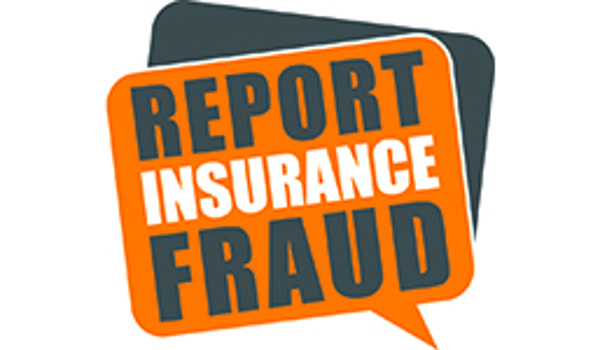Beware 'click-to-call' insurer ads

The Insurance Fraud Bureau (IFB), alongside the City of London Police’s Insurance Fraud Enforcement Department (IFED) and the Association of British Insurers (ABI), are warning the public to take caution when looking up their insurer’s details after a collision. Increasing evidence shows dodgy claims management firms are using search engine ad results to misrepresent insurers, hi-jack claims for referrals fees and potentially leave road traffic victims out of pocket.
How 'click-to-call' insurer search engine ad scams work
The scam works when someone is involved in a collision and uses an online search engine, such as Google, to find their insurer’s contact details. Misleading ‘click-to-call’ ad results – paid for by dodgy claims management firms - will show up and appear to represent the insurer, tricking the victim into tapping the ad and believing they are calling their insurance provider.
On the other end of the phone is often a representative from a claims management firm or marketing company, asking for the victim’s personal details to help provide them with ‘support’, ranging from collecting, fixing and replacing their damaged vehicle to processing a claim against the other driver in the collision. This information is passed onto a claims management firm that works in tandem with a network of unscrupulous companies to provide costly support services.
All the while, victims signing up for these services believe their fully-comprehensive car insurance policy covers everything and because they have no clue they’re not dealing with their insurer, thousands of pounds worth of fees are being racked up.
Who pays these fees can vary. If the other driver is at fault of the collision, the claims firm will claim against their insurer to cover most of the costs of its unsolicited ‘services’. In these instances, the affected individual may not realise they have been scammed.
However, if the other driver is not at fault of the collision, then the onus is placed on the individual who has been misdirected into contacting a claims management company for support, to pay for services that otherwise would be covered by their insurer. These fees can run into thousands of pounds and can result in non-stop threatening calls for the affected individual.
The scale of the scam
In 2019 the IFB, which works alongside IFED and the insurance industry to investigate networks of insurance fraud, received over 300 reports of dodgy claims firms that were appearing to misrepresent genuine insurers on online search result ads.
However, it’s believed this figure only begins to scratch the surface as many victims may be completely unaware that their claim has been redirected, whilst others who do find out are often unable to trace and report the firm responsible as the phone number they ‘clicked to call’ does not match the number displayed on the online ad.
Those who made the original search for their insurer on a computer and then called the visible phone number on the ad, are often the only ones in a position to trace the advert. Because of this, most claims firms looking to scam prefer to only place ads on mobile devices.
Investigations have also uncovered the calculated psychological tactics used by fraudulent claims companies over the phone, who make extra efforts to reassure and befriend their recovering road traffic victims while collecting their personal information for financial gain.
How to beat the 'click-to-call' insurer ad scammers
It’s recommended that members of the public take extra caution when using a search engine to make insurance-related enquiries before clicking on ad results, always check the website address – or URL - to help ensure it’s legitimate before using any contact details.
It’s also a good idea for motorists to carry their insurer’s claims contact number (which can often be found on policy documentation), and keep it noted in their car or saved on their phone.
If a member of the public thinks they have seen or had experience of a claims management company wrongly representing an insurer, it’s important to make the affected insurer aware so they can take steps to address the issue.
Suspicions of insurance fraud can then be reported to the IFB via its confidential CheatLine service (powered by Crimestoppers) on 0800 422 0421 or at www.insurancefraudbureau.org.
Industry comments
“The risk of this dishonest activity means that vulnerable members of the public can be left liable for significant credit hire charges (and other ancillary costs) if the claim is challenged. Unfortunately, we have seen examples where victims have been left seriously out of pocket as a result. We’re determined to work alongside the insurance industry, regulators and Trading Standards partners to stop these firms and the impact of their activities on innocent policyholders”. - Stephen Dalton, Head of Intelligence and Investigations at the IFB.
“We know that fraudsters often try and target people when they’re at their most vulnerable, and ‘click-to-call’ insurer ads is a prime example of this. Immediately after someone is involved in a collision, it’s likely they’ll be anxious and panicked, and this is when they’re most susceptible.”
“While we understand it’s natural to have these feelings, we’d urge people to try and remain calm and focused in this situation, being especially cautious if they use a search engine to search for their insurer’s details.”
“If you have suspicions that you’ve mistakenly contacted a fraudulent company, report it to IFB’s CheatLine or to Action Fraud. This information can then be passed onto IFED to follow up any viable lines of enquiry, and if appropriate, launch a criminal investigation.” - Detective Chief Inspector Andy Fyfe, Head of IFED.
"People need to be on their guard against rogue claims firms, who encourage inflated, frivolous or false claims, and are always looking for new scams. These end up being paid for by all honest insurance customers through their premiums. People should only use the contact details of the insurer from their policy documents, confirm who they are talking to, and not assume that all online sites are genuine.” - Mark Allen, Manager of Fraud and Financial Crime at the ABI.

